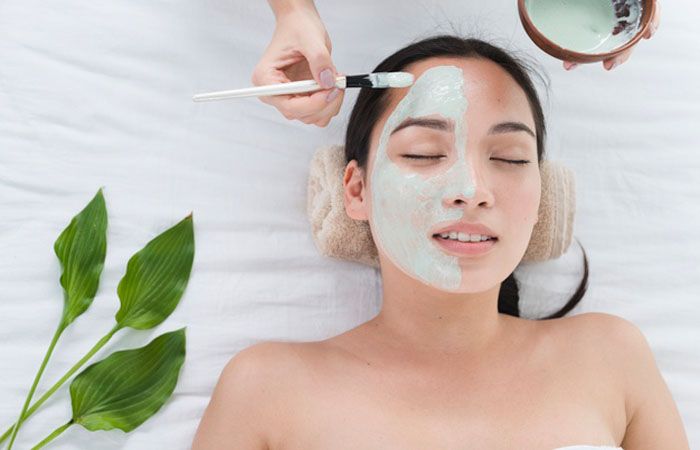It’s impossible to tell which aspect of a delicate skin is more troublesome to contend with: the adverse reactions or the possibility that such reactions may be entirely unpredictable. Making the situation much more complex is the fact that sensitive skin is some kind of vague term — and several people who seem to believe they have sensitive skin may actually be excessively using products that irritate the skin.
However, overall, women who appear to have a severe allergy or irritating dermatitis reactions (blistering, burning, itchiness, dryness, etc.) to skincare or beauty products, and also those who have skin issues such as psoriasis, dermatitis, rosacea, and eczema are perceived to have sensitive skin. And even though there is no way to ensure that you will simply avoid such types of reactions, there seem to be ways of making them less probable and also to enable your skin to function at its healthiest until then.
- Be Wary of What you apply on your skin.
It is also very essential to get a skin scan done before you use a new product on your skin or try a different product in the market. Just apply a small amount of it on your skin (hands, below the ear), not your face, for two days to see any allergic reactions.
Choose the beauty products that are “clean of scent” as most scented skincare products will adversely react to your sensitive skin and cause serious problems. It’s so much wiser to choose skincare products labeled “No synthetic colors.” don’t ever try out new products, especially prior to important outing or function. They could deteriorate your skin problem and ruin your whole appearance. Just go for the product and services you’ve experienced before or those recommended by your dermatologist.
Worse still, sensitive skin doesn’t really respond well to all types of ingredients that are present in the products. It is really necessary to recognize the ingredients in the product you are purchasing to prevent any skin discomfort that may occur during use. Often beauty parlors conduct skin testing only to figure out the best item to match the skin condition.
2- Moisturize your skin regularly.
Maintaining a healthy skin care routine is very useful for all skin types, especially sensitive skin kinds that necessitate moisture to be locked in to help avoid it from drying out. Choose a moisturizer that fits your skin, ideally natural. Many beauty brands have produced different moisturizing lotions made, especially for sensitive skin. Consider using one or more of them to get the desired results. Moisturizing is among the essential stages for healthy skin. Moisturizing keeps the skin hydrated and also makes sure that the skin does not end up losing the skin’s natural oil. Select organic moisturizers such as cocoa butter, castor oil, olive oil, coconut milk, tomatoes, etc. Such organic moisturizers would benefit the skin and keep it hydrated and make it shine naturally.
3- Drink lots of water
Quite often, the body begins to feel less hydrated. Water makes the skin glow and naturally beautiful. Interestingly, we lose moisture from the body in several ways without realizing it; therefore, it is essential to drink lots of water even during winter months. Rejuvenate your system and get ready to watch your skin glow without having to care about dullness. Have warm water and squeeze a lemon in it, and drink it every morning to really get the maximum benefit.
Read Blog:- Take Care of Your Skin in summer by Home Made Fruit Facial
4- Follow your skincare regime, religiously.
Cleansers continue to dry the face, so pick them carefully before using them. But upon cleansing, do not leave your body unclothed for more than 1 minute, as it may dehydrate, resulting in increased itchiness and dryness. As soon as you cleanse, spritz some toner and a moisturizer to seal the moisture. Use mild cleaning agents. Stop using soaps and facial washes that involve harmful chemicals and parabens because they can dry and harm your delicate skin. Alternatively, opt for gentle, hypoallergenic cleansers.
5- Use sunscreen
Irritable skin is sometimes very sensitive to sunlight. Apply (and reapply) sunscreen throughout the year with SPF 30 or better to shield sensitive skin against aggravating rays. Look for sunblocks with physical active compounds — like titanium dioxide and zinc oxide— which is far less likely to trigger reactions than tinted moisturizers, such as octinoxate, octocrylene, and oxybenzone. Too much exposure to the sun affects the skin cells, which may also cause a severe rash and skin disease. Harmful ultra-violet sun rays can be prevented when using shades and utilizing sunscreen lotions containing strong SPF. Try not to step out in the sun much.
Sensitive skin is vulnerable and prone to a lot of ingredients, let alone the chemicals. Follow the tips mentioned above, and you will be able to keep your sensitive skin healthy and glowing.
Author Bio: My name is Rena Levi, and I’m brand representative of Rena Levi Skin Care. I have over 45 years’ experience in the skincare industry, and I have decided to start blogging to share my experience with the potential audience.

